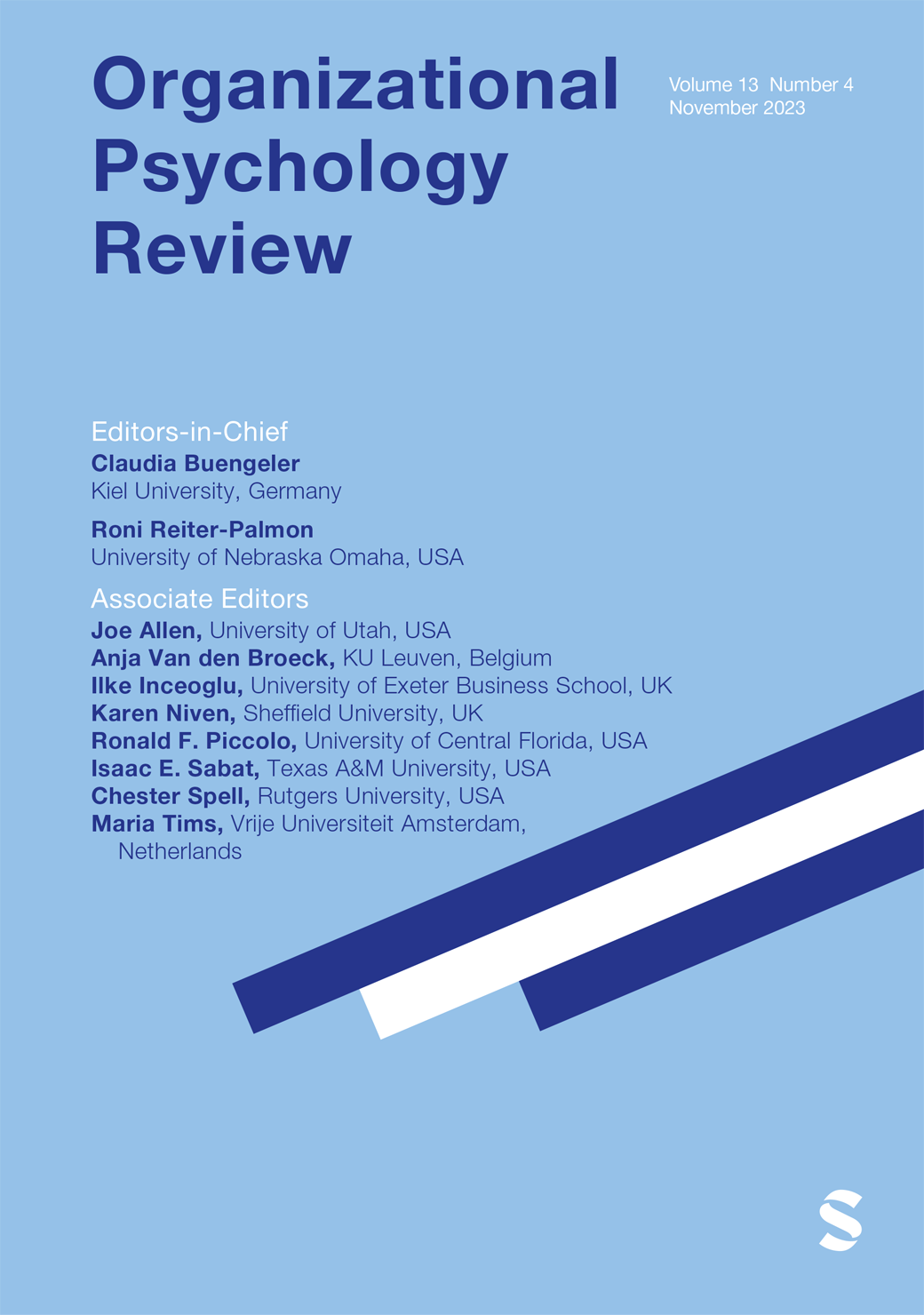理解气候:竞争价值观框架的元分析扩展
IF 7.1
1区 心理学
Q2 MANAGEMENT
引用次数: 16
摘要
组织气候研究最近激增,但跨领域的研究贡献使得很难就气候及其与绩效的关系得出结论。为了理解气候文献,我们使用竞争价值框架(CVF)将特定领域的气候分为四种气候类型(氏族、专制、等级制度和市场气候)。我们通过在概念上联系特定领域的气候来做到这一点,这些气候是相同潜在战略价值观的表现。然后,我们进行了荟萃分析,以检查CVF气候和表现之间个人和群体层面关联的大小、机制和调节因素。这些荟萃分析揭示了每种气候类型的积极气候绩效关联,并支持工作态度作为共同的中介。我们还研究了气候-绩效关系的几个方法论调节因素,测试了气候和绩效指标的来源、对这些结构的时间评估,以及气候指标中群体内一致性的水平,作为可能的边界条件。本文章由计算机程序翻译,如有差异,请以英文原文为准。
Making sense of climate: A meta-analytic extension of the competing values framework
Organizational climate research has surged recently, but the disbursement of research contributions across domains has made it difficult to draw conclusions about climate and its connections with performance. To make sense of the climate literature, we used the competing values framework (CVF) to classify domain-specific climates into four climate types (clan, adhocracy, hierarchy, and market climates). We did so by conceptually linking domain-specific climates that are manifestations of the same underlying strategic values. We then conducted meta-analyses to examine the magnitudes, mechanisms, and moderators of the individual and group-level associations between the CVF climates and performance. These meta-analyses revealed positive climate–performance associations for each climate type and supported job attitudes as a common mediator. We also examined several methodological moderators of climate–performance relationships, testing the source of climate and performance measures, the temporal assessment of these constructs, and the level of within-group agreement in climate measures as possible boundary conditions.
求助全文
通过发布文献求助,成功后即可免费获取论文全文。
去求助
来源期刊

Organizational Psychology Review
Multiple-
CiteScore
10.00
自引率
1.60%
发文量
25
期刊介绍:
Organizational Psychology Review is a quarterly, peer-reviewed scholarly journal published by SAGE in partnership with the European Association of Work and Organizational Psychology. Organizational Psychology Review’s unique aim is to publish original conceptual work and meta-analyses in the field of organizational psychology (broadly defined to include applied psychology, industrial psychology, occupational psychology, organizational behavior, personnel psychology, and work psychology).Articles accepted for publication in Organizational Psychology Review will have the potential to have a major impact on research and practice in organizational psychology. They will offer analyses worth citing, worth following up on in primary research, and worth considering as a basis for applied managerial practice. As such, these should be contributions that move beyond straight forward reviews of the existing literature by developing new theory and insights. At the same time, however, they should be well-grounded in the state of the art and the empirical knowledge base, providing a good mix of a firm empirical and theoretical basis and exciting new ideas.
 求助内容:
求助内容: 应助结果提醒方式:
应助结果提醒方式:


